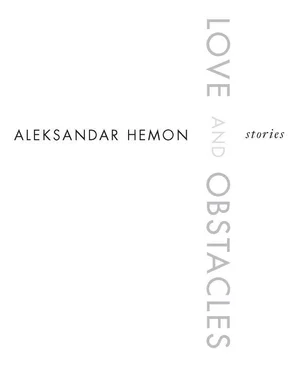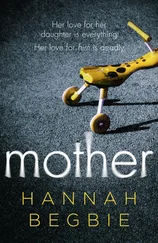Aleksandar Hemon - Love and Obstacles
Здесь есть возможность читать онлайн «Aleksandar Hemon - Love and Obstacles» весь текст электронной книги совершенно бесплатно (целиком полную версию без сокращений). В некоторых случаях можно слушать аудио, скачать через торрент в формате fb2 и присутствует краткое содержание. Издательство: Penguin USA, Inc., Жанр: Старинная литература, на английском языке. Описание произведения, (предисловие) а так же отзывы посетителей доступны на портале библиотеки ЛибКат.
- Название:Love and Obstacles
- Автор:
- Издательство:Penguin USA, Inc.
- Жанр:
- Год:неизвестен
- ISBN:нет данных
- Рейтинг книги:5 / 5. Голосов: 1
-
Избранное:Добавить в избранное
- Отзывы:
-
Ваша оценка:
- 100
- 1
- 2
- 3
- 4
- 5
Love and Obstacles: краткое содержание, описание и аннотация
Предлагаем к чтению аннотацию, описание, краткое содержание или предисловие (зависит от того, что написал сам автор книги «Love and Obstacles»). Если вы не нашли необходимую информацию о книге — напишите в комментариях, мы постараемся отыскать её.
Love and Obstacles — читать онлайн бесплатно полную книгу (весь текст) целиком
Ниже представлен текст книги, разбитый по страницам. Система сохранения места последней прочитанной страницы, позволяет с удобством читать онлайн бесплатно книгу «Love and Obstacles», без необходимости каждый раз заново искать на чём Вы остановились. Поставьте закладку, и сможете в любой момент перейти на страницу, на которой закончили чтение.
Интервал:
Закладка:
Still, living displaces false sentiments. I had to go on with my American life, keeping Dedo out of it, busying myself with local survival, getting jobs, getting into graduate school, getting laid. Every once in a while I unleashed the power of his words upon a sensitive American woman. The first one was Cheryl, the idle wife of a Barrington lawyer, whom I met at a Bosnian benefit dinner that she was kind enough to organize. At least one Bosnian was required to benefit from her benefit dinner, so she tracked me down through a friend, an expert in disability studies with whom I had read a paper at a regional MLA conference. Cheryl was generous beyond the dinner; before she went back to Barrington, I took her to my tiny studio—a monument to the struggles of immigration, with its sagging mattress, rotting shower curtain, and insomniac drummer next door. I recited Dedo’s poems to her, pretending they were my own. She particularly liked the one about the man walking, during a lull in shelling, with his rooster on a leash, a soul fastened to a dying animal. Then I removed the permed tresses from her forehead so that I could kiss it and slowly undressed her. Cheryl writhed in my embrace, kissed me with clammy passion, hoisted her hips, and moaned with pleasure, as though the intensity of her orgasm would directly succor the Bosnian resistance. I could not help thinking, in the end, that she was fucking Dedo, for it was his words that had seduced her. But I took what was given and then rolled off into the darkness of my actual life.
After the charitable Cheryl, I was somewhat ashamed and for a while I could not stand to look at Dedo’s poetry. I finished graduate school; I sold my stories; I was an author now. And somewhere along the way the war ended. On my book tour, I traveled around the country, reading to minuscule audiences, talking about Bosnia to a mixture of international relations and South Slavic languages students, simplifying the incomprehensible, and fretting all along that an enraged reader would stand up and expose me as a fraud, as someone who had no talent—and therefore no right—to talk about the suffering of others. It never happened: I was Bosnian, I looked and conducted myself like a Bosnian, and everyone was content to think that I was in constant, uninterrupted communication with the tormented soul of my homeland.
At one of those readings, I met Bill T., a professor of Slavic languages. He seemed to speak all of them, Bosnian included, and he was translating Dedo’s latest book. With his red face, long, curly beard, and squat, sinewy body, Bill looked like a Viking. His ferocity was frightening, so I immediately flattered him by saying how immeasurably important it was to have Dedo’s poetry translated into English. We went out drinking, and Bill T. drank like a true Viking too, while detailing the saga of his adventures in Slavic lands: a month with shepherds in the mountains of Macedonia; a year of teaching English in Siberia; his interviews with Solidarnosz veterans; the Slovenian carnival songs he had recorded. He had also spent some years, just for the hell of it, in Guatemala, Honduras, and Marrakech. The man had been everywhere, had done everything, and the drunker I got, the greater he was, and the more of nothing I had to say.
This was in Iowa City, I believe. I woke up the next morning on Bill T.’s sofa. My pants were laid out on the coffee table. Along the walls were dusty stacks of books. In the light fixture above me I could see the silhouettes of dead flies. A ruddy-faced boy with a gossamer mustache sat on the floor next to the sofa and watched me with enormous eyes.
“What are you doing here?” the boy asked calmly.
“I don’t really know,” I said, and sat up, exposing my naked thighs. “Where is Bill?”
“He stepped out.”
“Where is your mom?”
“She’s busy at the moment.”
“What is your name?”
“Ethan.”
“Nice to meet you, Ethan.”
“Likewise,” Ethan said. Then he grabbed my pants and threw them at me.
It was while I was slouching down the linden-lined street, where people nodded at me from sunny porches and able-bodied squirrels raced up and down the trees—it was then that the story Bill had told me the night before about Dedo fully hit me and I had to sit down on the curb to deal with it.
Dedo had come to Iowa City, Bill said, to be in the International Writing Program for twelve weeks. Bill had arranged it all, and volunteered to put Dedo up in the room above his garage. Dedo arrived with a small duffel bag, emaciated and exhausted, with the English he picked up while translating Yeats and a half-gallon of Jack Daniel’s he picked up in a duty-free shop. The first week, he locked himself in above the garage and drank without pause. Every day, Bill knocked on the door, imploring him to come out, to meet the dean and the faculty, to mingle. Dedo refused to open the door and eventually stopped responding altogether. Finally, Bill broke the door down, and the room was an unreal mess: Dedo had not slept in the bed at all, and it was inexplicably wet; there were monstrous, bloody footprints everywhere, because Dedo had apparently broken the Jack Daniel’s bottle, then walked all over it. A box of cookies had been torn open and the cookies were crushed but not eaten. In the trash can were dozens of Podravka liver pâté cans, cleaned out and then filled with cigarette butts. Dedo was sleeping on the floor in the corner farthest from the window, facing the wall.
They subjected him to repeated cold showers; they cleaned him up and aired out the room; they practically force-fed him. For another week he wouldn’t stick his nose out of the room. And then, Bill said, he began writing. He did not sleep for a week, delivering poems first thing in the morning, demanding translations by the afternoon. “American poets used to be like that,” Bill said wistfully. “Now all they do is teach and complain and fuck their students on the sly.”
Bill canceled his classes and set out to translate Dedo’s poems. It was like entering the eye of a storm every day. In one poem, Bill said, a bee lands on a sniper’s hand, and he waits for the bee to sting him. In another one, Dedo sees an orange for the first time since the siege began, and he is not sure what is inside it—whether oranges have changed during his time away from the world; when he finally peels it, the smell inhales him. In another, Dedo is running down Sniper Alley and a woman is telling him that his shoe is untied, and with a perfect clarity of purpose, with the ultimate respect for death, he stoops to tie it, and the shooting ceases, for even the killers appreciate an orderly world. “I could not believe,” Bill said, “that such things could come out of that pandemonium.”
At the end of the third week Dedo gave a reading. With a mug of Jack at hand he barked and hissed his verses at the audience, waving a shaky finger. After he had read, Bill came out and read the translations slowly and serenely in his deep Viking voice. But the audience was confused by Dedo’s hostility. They clapped politely. Afterward, faculty and students came up to him to ask about Bosnia and invite him to luncheons. He visibly loathed them. He livened up only when he realized that he had a chance to lay one of the graduate students who was willing to open her mind to “other cultures.” He was gone the next week, straight back to the siege, sick of America after less than a month.
In the years after the war, only the occasional rumor reached me: Dedo had survived a massive heart attack; he’d made a deal with his physician that he would stop drinking but go on smoking; he’d released a book based on conversations with his young niece during the siege. And then—this made the news all over Bosnia—he’d married an American lawyer, who was working in Bosnia collecting war-crime evidence. The newspapers cooed over the international romance: he had wooed her by singing and writing poetry; she had taken him to mass grave sites. A picture from their wedding showed her to be a foot taller than he, a handsome woman in her forties with a long face and short hair. He consequently produced a volume of poems, titled The Anatomy of My Love, featuring many parts of her remarkably healthy body. There were poems about her instep and her heel, her armpit and her breasts, the small of her back and the size of her eyes, the knobs on her knees and the ridges on her spine. Her name was Rachel. I heard that they had moved to the United States—following her body, he had ended up in Madison, Wisconsin.
Читать дальшеИнтервал:
Закладка:
Похожие книги на «Love and Obstacles»
Представляем Вашему вниманию похожие книги на «Love and Obstacles» списком для выбора. Мы отобрали схожую по названию и смыслу литературу в надежде предоставить читателям больше вариантов отыскать новые, интересные, ещё непрочитанные произведения.
Обсуждение, отзывы о книге «Love and Obstacles» и просто собственные мнения читателей. Оставьте ваши комментарии, напишите, что Вы думаете о произведении, его смысле или главных героях. Укажите что конкретно понравилось, а что нет, и почему Вы так считаете.












